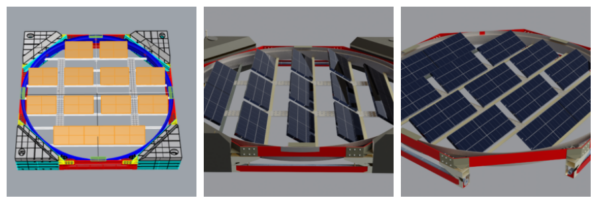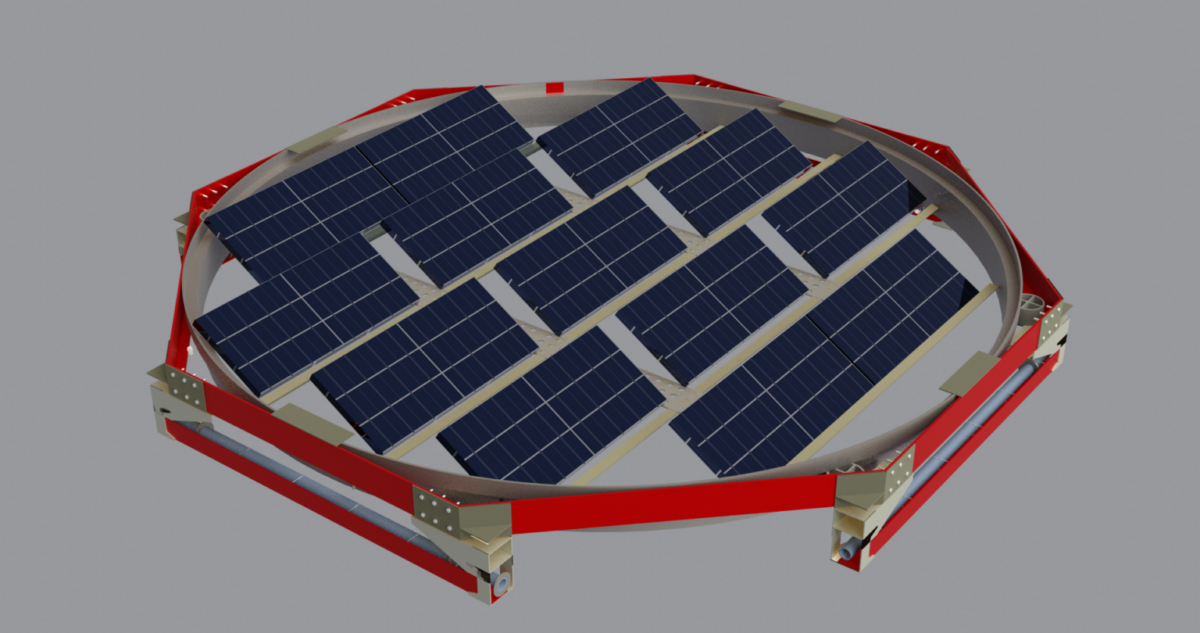From pv magazine Global
Scientists from the Port Said University in Egypt and the University of Strathclyde in the United Kingdom have proposed to combine compressed air energy storage (CAES) with floating photovoltaics through a novel energy management strategy.
“To overcome the intermittency and availability issues of solar energy, the proposed floating PV system is equipped with an environmentally friendly hybrid compressed air energy storage system controlled by a novel energy management strategy to efficiently manage the power flow between the system’s components without exceeding their allowable operational limits for safe operation,” the research’s lead author, Erkan Oterkus, told pv magazine. “This control strategy is designed to ensure fulfilling the load requirements and utilizing even the low-grade PV power production, which reduces any power waste and improves the system efficiency.”

A hot water tank is also integrated with a heat exchanger to raise the temperature of the compressed air prior to its expansion. The compressed air is released and heated through the hot water tank before its expansion in the expander to regenerate electricity using the generator.
Through a series of simulations, the research team found that the system has a roundtrip efficiency of 34.1% and an exergy efficiency of 41%, with the strongest system performance being observed between December and January. “Compared to conventional CAES systems, the proposed hybrid CAES system has an annual fuel saving of 126.4 of natural gas,” the academics emphasized. “This fuel saving will also result in an economic benefit by reducing the system operational cost by $27,690/year of fuel cost.”
They also found that the system’s energy and exergy efficiency can be considerably affected by the efficiency of individual components, which they said can decrease under off-design and partial load operation conditions.
The system was described in “Hybrid compressed air energy storage system and control strategy for a partially floating photovoltaic plant,” published in Energy.
This content is protected by copyright and may not be reused. If you want to cooperate with us and would like to reuse some of our content, please contact: editors@pv-magazine.com.









By submitting this form you agree to pv magazine using your data for the purposes of publishing your comment.
Your personal data will only be disclosed or otherwise transmitted to third parties for the purposes of spam filtering or if this is necessary for technical maintenance of the website. Any other transfer to third parties will not take place unless this is justified on the basis of applicable data protection regulations or if pv magazine is legally obliged to do so.
You may revoke this consent at any time with effect for the future, in which case your personal data will be deleted immediately. Otherwise, your data will be deleted if pv magazine has processed your request or the purpose of data storage is fulfilled.
Further information on data privacy can be found in our Data Protection Policy.